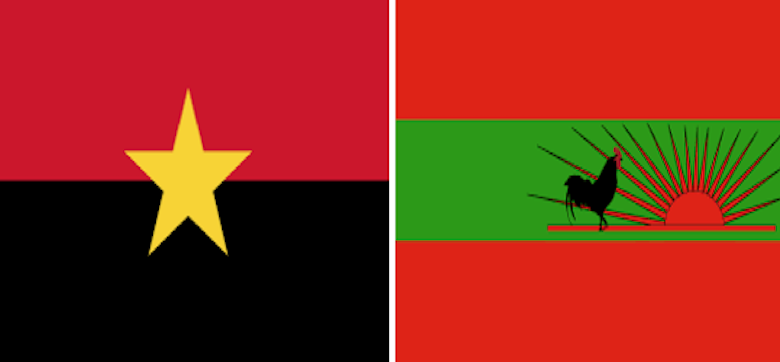Image: RN
By Friends of Angola
1. Voter Registration (Law No. 21/21)
UNITA:
- Institutional Change: Proposes transferring the responsibility for voter registration from the Ministry of Territorial Administration (MAT) to the National Electoral Commission (CNE).
- Rationale: Argues that MAT, as part of the Executive, lacks independence, undermining trust in the process.
- Technical Proposal: Supports maintaining an automatic and continuous voter registration system, but under the management of a technically credible and electorally impartial body.
- Objective: To strengthen citizens’ trust and the legitimacy of the electoral process.
MPLA:
- Maintenance of Current Structure: Supports MAT remaining responsible for registration, citing its administrative capacity and national presence.
- Technical Oversight: Argues that the CNE already supervises and monitors the process, and that this separation ensures operational efficiency.
- Dominant Narrative: The current model works, and radical changes are unnecessary.
2. Organization and Functioning of the CNE (Law No. 12/12)
UNITA:
- Complete Restructuring: Proposes a more independent, pluralistic CNE free from partisan control.
- Appointments: Advocates for commissioners to be appointed by independent bodies such as judicial associations, universities, and civil society.
- Nature of the Body: Intends to transform the CNE from an administrative to a quasi-judicial body with greater autonomy and final decision-making power.
- Purpose: To avoid political subordination and ensure impartiality in election management.
MPLA:
- Maintains the Current Model: The CNE should retain its current structure based on parliamentary proportionality.
- Political Justification: The dominant presence of the ruling party (due to its parliamentary majority) in appointments is viewed as an expression of popular sovereignty.
- Institutional Stance: Supports the current hybrid model—technical but with representation from parliamentary parties.
3. General Elections Law (Law No. 36/11)
UNITA:
- Transparency and Social Oversight:
- Proposes mandatory posting of results at polling stations.
- Supports real-time transmission of results directly from polling centers to the CNE.
- Simplification of Voting: Suggests clearer and more user-friendly ballot papers.
- Local Counting: Advocates for decentralizing the vote counting process to prevent manipulation.
- Mechanism Review: Challenges the centralized final tallying in Luanda and proposes a more open and participatory counting process.
MPLA:
- Defense of the Existing Model:
- Supports centralized counting by the CNE based on data collected by provincial commissions.
- Institutional Stability: Argues that the current system ensures order, reliability, and prevents post-election conflict.
- Skepticism about Decentralization: Believes radical changes could jeopardize the technical organization of the process and increase instability.
4. Voter Identification Document
MPLA:
- Proposes that the National Identity Card (BI) be the only valid document for voting in Angola.
- Citizens residing abroad would be required to use a passport.
UNITA:
- Considers the proposal unfeasible because:
- The majority of voters use the Voter Card.
- According to official data, many citizens do not have a BI.
- The government lacks the capacity to issue BI at scale.
- Risk: The measure could exclude thousands of voters.
5. Summary Records at Polling Stations
MPLA:
- Proposes the elimination of summary records (atas-síntese) at polling stations.
- Justifies the measure as a way to simplify the vote-counting process.
UNITA:
- Rejects the proposal, arguing that summary records guarantee local transparency.
- Proposes to reinstate provincial vote-counting centers as a form of decentralized oversight.
6. Introduction of Mobile Polling Stations
MPLA:
- Plans to implement mobile polling stations to reach voters in remote areas.
UNITA:
- Opposes the proposal, arguing that mobile polling stations have been used for electoral fraud in past elections.
- Asserts that this model undermines trust in the electoral process.
Conclusion
UNITA calls for comprehensive reform of Angola’s electoral system, advocating for greater transparency, institutional independence, and meaningful civic participation. Its proposals seek to address structural imbalances and restore public trust in the democratic process.
In contrast, the MPLA favors preserving the current electoral framework, emphasizing that the existing model ensures legitimacy, operational stability, and institutional continuity. The party defends incremental change over systemic transformation.
This divergence reflects a deeper tension between two political visions: one prioritizing democratization and institutional reform, the other grounded in centralized governance and controlled stability.
The comparison underscores how each approach influences key aspects of electoral access, process integrity, and oversight—revealing the broader stakes for the future of democratic governance in Angola.

